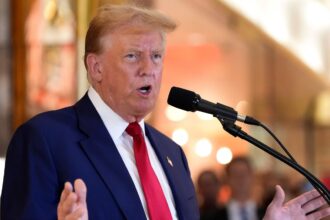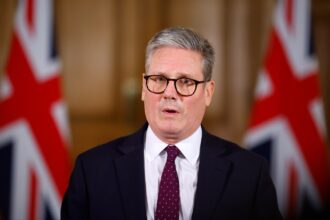Prime Minister Keir Starmer has vowed to defend and reshape Britain’s car industry in the face of global economic turbulence triggered by Donald Trump’s tariffs, which have rocked international trade and left UK manufacturers scrambling for support.
Speaking from a Jaguar Land Rover plant in the West Midlands, Starmer said the UK was ready to “shape history” by supporting homegrown industries that have been “crippled” by recent U.S. trade policies.
“These are challenging times, but we have chosen to come here because we are going to back you to the hilt,” Starmer said in a defiant address.
- Advertisement -
Tariff Fallout Prompts Policy Shifts
The UK Prime Minister’s remarks follow Donald Trump’s imposition of heavy tariffs on foreign automobiles and parts, a move that has disrupted global supply chains and placed increased strain on European and British carmakers that export to the U.S. market.
To ease the pressure, Starmer announced a five-year delay to the ban on hybrid vehicles, giving manufacturers more time to adapt. Originally set to take effect in 2030, the ban will now be pushed to 2035, aligning the UK more closely with global competitors and offering breathing space to an industry caught in the crossfire of international trade disputes.
He also pledged to slash “stifling bureaucracy” across other key sectors to enhance competitiveness and restore economic stability.
A Broader Industrial Strategy
Starmer’s intervention is being seen as the beginning of a broader industrial reset, with his government signalling a more pragmatic approach to environmental targets and trade resilience. While critics may accuse the PM of rolling back green commitments, industry leaders welcomed the announcement as a necessary adjustment to protect jobs and investment.
Looking Ahead
As global markets reel from the repercussions of Trump’s aggressive economic policies, the UK is seeking to buffer its industries from further fallout. Starmer’s speech not only delivered a message of immediate relief to carmakers but also hinted at a new direction for British economic and industrial policy—one that blends climate commitments with economic realism.
“We will make the tough decisions needed to keep Britain competitive while still driving toward a sustainable future,” said a senior Downing Street official.
- Advertisement -
With international tensions rising and market stability uncertain, the UK government’s next steps will be closely watched by manufacturers, investors, and environmental groups alike.












